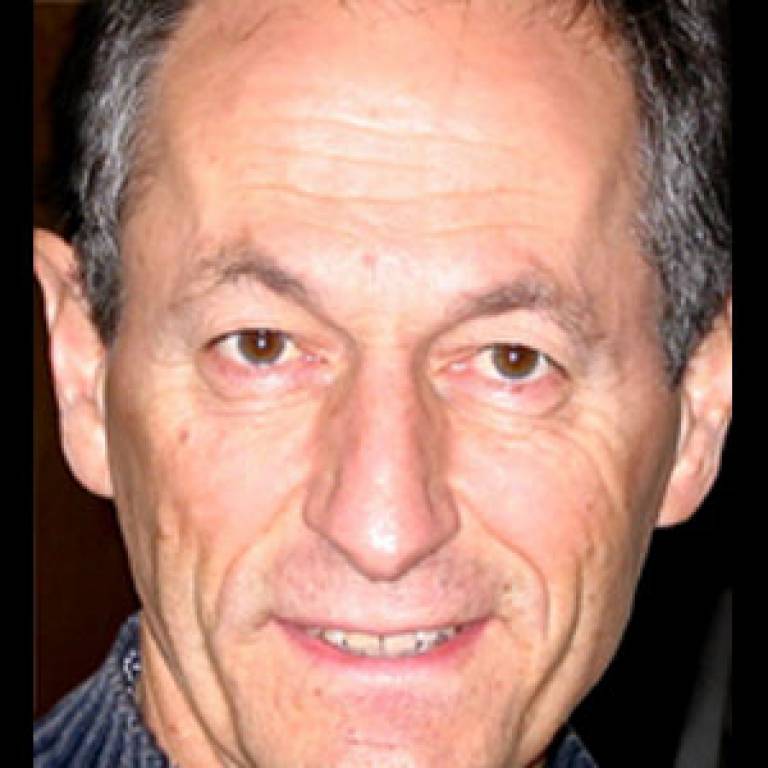Doctors 'must lead fight against inequality and injustice'
13 July 2010
Links:
 ucl.ac.uk/epidemiology/" target="_self">UCL Epidemiology & Public Health
ucl.ac.uk/epidemiology/" target="_self">UCL Epidemiology & Public Health
The UCL professor elected as the new president of the British Medical Association (BMA) has issued a rallying cry to doctors to lead the fight against health inequalities and social injustice.
He quoted the Chilean writer Pablo Neruda as he called on his BMA colleagues to 'rise up against the organisation of misery'.
Professor Sir Michael Marmot (UCL Epidemiology & Public Health) said he was surprised by his election to head the association of doctors as his research and its policy implications emphasised that the causes of health inequalities lay outside the medical sector in the organisation of society.
He said: "My year as president will have real meaning if I can help encourage other doctors to be active in the challenge to reduce avoidable inequalities in health, not just here within Britain, but globally between countries."
Earlier this year Professor Marmot published the results of a Government-commissioned review of health inequalities in Britain entitled it: Fair Society: Healthy Lives.
It concluded that, although health inequalities are normally associated with the poor, premature illness and death affects everyone below the wealthiest tier of English society.
Professor Marmot also chaired the World Health Organisation's (WHO) Commission on Social Determinants of Health (CSDH). Social determinants of health are the conditions in which people are born, grow, live, work and age, including the health system.
In response to the final report of the CSDH, the WHO agreed a landmark resolution calling on the international community to collaborate to assess the impacts of policies and programmes on health inequalities, to work together to enhance health equity and to consider health equity as they work toward core global development goals.
Accepting the BMA presidency at an event in Brighton, Professor Marmot said: "So close is the link between social and economic arrangements and health that we can see health as social accountant. Health and the fair distribution of health and health inequalities tell us how we are doing as a society. The simple answer is: we're doing well but can do better."
Professor Marmot told the audience that the international community had the knowledge and the means to address health inequalities and social injustice, but not always the political will.
He said: "We said in the CSDH report that one billion people live in slums. We estimated that it would cost $100 billion to upgrade the world's slums. I thought: no on one will take us seriously. Who would find $100 billion for anything? When I last looked we had found $9 trillion to bail out the banks. For one-ninetieth of the money we found to bail out the banks every urban dweller could have clean running water."
But Professor Marmot said there were reasons for optimism - for example, the political response to Fair Society: Healthy Lives and the CSDH report - and pledged to strive to keep the social determinants of health at the heart of the national and international debate.
For more information about Professor Marmot's research and UCL Epidemiology & Public Health, follow the links above.
Image: Professor Sir Michael Marmot
UCL context
UCL Epidemiology & Public Health is a multi-disciplinary department that aims to develop a better understanding of health and prevention of ill health through vigorous research and the development of research methodology. This knowledge is applied via undergraduate and graduate teaching, contributions to national and international health policy and contributions to the wider public understanding on health.
UCL's research strategy defines Grand Challenges as those areas in which it is facilitating cross-disciplinary interaction within and beyond UCL and applying the institution's collective strengths, insights and creativity to overcome problems of global significance. The first of these is the Grand Challenge of Global Health.
Related stories:
England's health inequalities 'unfair and unjust'
WHO responds to findings of UCL-led commission with landmark resolution
 Close
Close

